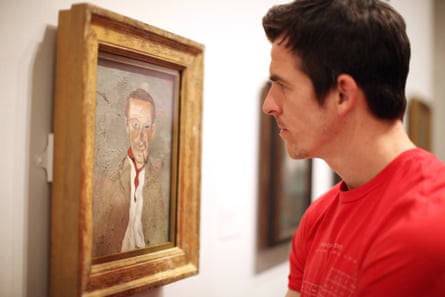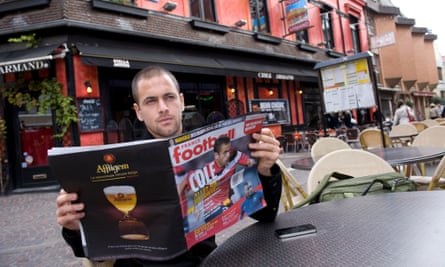I asked a Spanish reporter if any big clubs in the Peninsula had eyes on British stars. “I don’t think so,” he said. “You have some grand craftsmen, but the Spanish prefer artistes, of which you have only a dozen or so. It’s also exceptional for British professionals to be happy abroad.” Bill Croft writing in the November 1958 issue of Charles Buchan’s Football Monthly magazine.
Now, consider these names: Ashley Cole, Ravel Morrison, Joey Barton, Joe Cole, Micah Richards and Jermaine Pennant. At first glance it might appear to be a list of the footballers called most frequently to stand in front of FA panels for disciplinary hearings. However, as it happens, these are the most noticeable names from a remarkably small group of English footballers of recent times to have left home for one of the other major European leagues. And for that, they should be credited. But we must wonder why this is the case.
Why is it that this motley crew of prima donnas and bad boys are the English footballers to have upped sticks to play in a different European country – with a different climate, language and culture? Are the more, let’s say, clean-cut and well-behaved English footballers content with their lot? Are they already in the best league in the world? Or are they reluctant to face the unknown?
In the summer of 2014 a photograph surfaced on the internet of the Roma squad posing together for a very ordinary, slightly disorganised pre-season team photograph. As the squad grouped together, smiling and showing off their holiday tans, one man stood conspicuously apart although he was still clearly posing for the same photograph.
That man was Ashley Cole, who had joined the Italian runners-up just weeks earlier, seeking a fresh challenge after 15 years at the highest level of English football, during which time he built himself the largely undisputed reputation as the finest English full-back of the modern era. “Lurking” was the favoured word to describe Cole’s stance in the photograph, as the internet took delight in poking fun at his apparent struggle to fit in in Italy. The more cruel viewers suggested he had clearly made no friends.
Fast forward 15 months and Cole’s Roman adventure has ended as little more than a drab non-event. It will have amused his detractors, who will be taking smug pleasure in seeing that his stint abroad has ultimately been a failure. He tried Italy and it wasn’t for him. Now, with the ready cooperation of the Italian club, he has ended his contract early to join Steven Gerrard over in California at LA Galaxy. He will be fine there. Even if he does not really ever win anything or play particularly well: he will be fine there.
However, let me now say this: fair play to Ashley Cole. Fair play because, after leaving Chelsea, he could have swanned straight over to the US, or to the Middle East, or to Australia, or to Southeast Asia where the money appears plentiful and the appetite for the game is, it seems, insatiable. Because, for all we might praise the technical skill of Spanish football, the passion of Italian football and even go so far as to believe the entire German Bundesliga experience to be the most complete of the lot, Cole is part of a very small group of English players to have headed to mainland Europe to experience a type of European football different to that of the familiar English brand. By moving to Serie A, Cole clearly felt he still had something to offer at the highest level before going for the feelgood pre-retirement-kickaround-cum-extended-holiday that most of his English peers prefer in the twilight years of their careers.

Of course, there will continue to be the lure of the Real Madrid marching band of galácticos who will – as long as club president Florentino Pérez is in charge – continue to lure in the crème de la crème of Premier League talent with the promise of riches and glory. Michael Owen, Steve McManaman, Jonathan Woodgate and, the most obvious galáctico of all, David Beckham, have all called the Bernabéu home at some stage during the last 15 years, to varying degrees of success. Welshman Gareth Bale fulfilled one of football’s great childhood dreams in signing for the famous Spanish club in 2013 and, when he is not being lambasted by the Spanish media, he usually runs riot against the generally powerless teams of La Liga. Aside from Madrid and Barcelona, however, there appears to be no continental destination where English players want to play.
Refreshingly, McManaman, who was affectionately dubbed “El Macca” in Spain, embraced Madrid life and his successes – eight trophies, including two European Cups – make his the most successful foreign stint of any English player since Gary Lineker became the darling child of Barcelona at the end of the 1980s. Though he received only modest recognition in England for his excellent achievements at Madrid, his approach to the new culture should surely be the first example followed by English players who make a similar move to mainland Europe.
Owen, however, has since admitted that he found it difficult to become attuned to the Madrid lifestyle with his young family and found himself frustrated with so much time spent waiting around his hotel. He even admitted that, after occasionally playing a round of golf with some of his Madrid team-mates in the afternoons, he would be left feeling guilty, knowing that his wife and daughter would be in the hotel with “nothing to do”. He felt that the lack of a solid support system around him and his family meant it was difficult to really enjoy life in Spain and ever feel settled. Just one season in, his wife wanted to return to England and Owen was missing the excitement of the Premier League. Nonetheless, Owen holds no regrets for moving to the Spanish capital.

Perhaps, then, it is the family element that restricts English players from giving the continent a try. Perhaps it is the married-with-children players who see little benefit in uprooting and so it is often left to the unmarried or childless players with fewer ties that bind to England that decide to try the new life abroad. Given the young age at which most footballers tend to marry, players settle into the stable life rather early on in their careers and so there are not so many unmarried players left to make the move. Even one of England’s most cultured footballers, Jack Wilshere, wears his love of his country for all to see and, despite his stop-start Arsenal career, it is difficult to even imagine him, supposedly England’s most Spanish footballer, leaving his London comforts for a new challenge abroad.
Or maybe it is simply that players struggle to see beyond England for quality of football. Despite the repeated shortcomings of the English national side, we so often proudly proclaim our league as the best in Europe and by that merit then, we will gladly assume, the best league worldwide. As we all know, football was invented in England. As Cecil Rhodes put it: “Remember that you are an Englishman, and have consequently won first prize in the lottery of life.” If the English league is the best in the world, then, why go anywhere else?
Tom Ince was left in the cold by Liverpool despite much talk of his promise. However, upon leaving the club aged 19, he played his way to the country’s attention with fine performances at Blackpool. This should have been the beginning of an ascent to the top for Ince, but in the summer of 2014 he baffled many with his decision to reject a move to Internazionale in favour of a switch to Hull City to play under Steve Bruce.
Despite being flattered by the attention and finding it “unbelievable” to stand on the San Siro pitch, he said he valued first-team football over being at a “status” club such as Internazionale. This is an honourable justification for passing up on such an eye-catching move, but Ince was shipped off on loan to Nottingham Forest just weeks into the season as it became clear he would not feature regularly at Hull. After a subsequent move to Derby County he has returned to playing regularly and is finding his form again but, just shy of his 24th birthday, it is difficult not to wonder what would have happened had he moved to Italy. Upon politely rejecting their advances, Ince said: “I still have ambitions to one day play in Europe”. But it’s hard to imagine an opportunity as enticing ever coming around again.
Ravel Morrison, once described by Alex Ferguson as the greatest talent he had seen in any Manchester United youth side, is currently playing in Italy for Lazio. While Morrison is now at his sixth different club, his old academy team-mate Paul Pogba is the standout talent in Serie A. In the time that Pogba has amassed over 100 appearances for Juventus and 27 caps for France, Morrison has found himself tangled up in a string of off-field controversies, with a varied repertoire of cases involving witness intimidation, common assault, homophobic threats and criminal damage.
The contrast is remarkable considering that Morrison was often seen as the more noticeable midfielder in that Manchester United youth side. Morrison left Manchester United for West Ham in January 2012, just two days short of his 20th birthday. Pogba, who is still only 22 years old, left United the following summer, when also aged 19. Their careers should not have veered off in such contrasting directions. Could Morrison’s curse really be that he is English and has, therefore, already won “the first prize in life”?
Morrison has made just three league appearances in Italy, all from the bench. It is said that he has not made an effort to learn Italian, not integrated with the Lazio squad and spends his time surrounded by his own personal entourage. Lazio are now said to be looking to offload him for just £750,000. Manchester United will be kicking themselves for having let one of football’s finest young talents slip through their grasp. They won’t be thinking about Morrison.
When another member of this curious group of expatriate English footballers, Joey Barton, left England the move abroad appeared to to be a welcome self-imposed exile for a player who had become more known for his baggage off the field than his talent on it. To his credit, Barton embraced his new surroundings on the south coast of France during his season-long loan spell with Marseille. During this time, with true Barton class, though, he did still manage to tell Brazil captain Thiago Silva he looks like an “overweight ladyboy” and also, somewhat less controversially, inform Zlatan Ibrahimovic that he has a big nose.

His contribution in a footballing sense was respectable, clocking up 25 league appearances as well as five in the Europa League. This is how Barton assessed his time in Marseille on Twitter: “I’ve had a year in France at a fantastic club and almost won the championship. And made a lifelong connection with the fans.” He was not as successful at Marseille as his compatriot, Chris Waddle, 20 years earlier, but the midfielder enjoyed his time so much that wanted to make his loan spell in France permanent. However, Marseille could not afford to pay the sort of wages he was accustomed to in England and so, with his belongings all packed up again, he returned to England.
Jermaine Pennant, meanwhile, is a player whose performances on the pitch have rarely offered much of a return on the time and effort invested in keeping him on the right side of the tracks off it. Pennant, who gave his name as Ashley Cole to police officers following an infamous drink-driving episode, ultimately became more known for his car escapades than his playing. It is difficult to decide which is more baffling: that he was a youth product of the Arsène Wenger school of football at Arsenal or that, aged 24, he was one of the best performers in the 2007 Champions League final, as Liverpool succumbed to Milan. Nonetheless, when the time came for Pennant to leave Liverpool he looked to Spain and found himself signing up to be the best paid player at Real Zaragoza. It was not to be a successful time for the man from Nottingham.

The first footballer in history to play while wearing an electronic tag following his imprisonment for the aforementioned drink-driving incident was sent home on various occasions for arriving late to training. On one occasion, he claimed the delay was due to be being pulled over by police for speeding while en route to work. Following one of these misdemeanours the local newspaper, El Periódico de Aragón opened an article with the sentence: “Pennant is as he is and nobody is going to change him.”
Much to the annoyance of his team-mates, the local press and the club supporters, it was felt that the Englishman never made any real effort to learn Spanish and, despite his qualities as a winger, rarely made any significant sort of contribution on the pitch in his 25 appearances. The damning assessments in the media continued: “Pennant, unadapted in every sense to the city and the club, has been absolutely unproductive despite his quality.” The club were relieved to wash their hands of him when Stoke City decided to bring the winger back to England. Months later, in one barely believable final show of arrogance or, simply, ignorance, Pennant was contacted by Real Zaragoza regarding a Porsche with the number plate P33NNT that had been left outside Zaragoza train station five months earlier. The footballer allegedly claimed to have forgotten he even owned it. Now aged 33, he has recently signed for Tampines Rovers. Look them up.
And now, for England’s very own “artiste”: Joe Cole. One of England’s most gifted footballers of the modern era, Cole, sometimes dubbed “the Cockney Pelé”, stands out from the rest of the English players in this group. His talent on the ball along with his likeable nature earned him almost universal admiration. However, England national sides never knew how to accommodate such a luxurious position in a team of only eleven players. It was generally agreed that Cole would have been more suited to the Spanish or Italian leagues, where skill on the ball was valued over physical power. Yet, tied as he was to London, Cole spent his peak years at Chelsea doing his best to fit into the highly disciplined 4-3-3 system employed by José Mourinho. Of course, this would also bring about the most successful period of his career, but it came at the expense of Cole’s artistry.

In reality, Cole’s move to the continent in 2012 probably came too late in his career to offer us a true sight of the roaming playmaker Harry Redknapp had originally envisaged. His loan spell in France offered Cole a respite from the pressures of English football. At Lille, the slower pace on and off the pitch suited Cole, who had been somewhat drained by a sustained lack of fitness, form and luck during his time at Liverpool. Still, the experience was better late than never and his French adventure brought Lille supporters moments of true quality to savour. Yet, as with so many of these English players, the move abroad was nothing more than a loan spell. For all the talk of hoping to make a deal permanent, very few have ended up committing to anything beyond the loan. Not that we should be wishing our own players away, but there appears to be a reluctance to commit to life away from England.
Maybe the main explanation for the scarcity of English football exports to Europe lies in something simple: a fear of learning foreign languages. This is something ingrained into the English psyche from a young age, where very few youngsters embrace learning another language and then, in later years, see it as a largely futile practice given the widespread general assumption that pretty much everybody already speaks English.
This has made the English eternally fearful of making a fool of themselves on foreign soil, so why would English footballers take the risk of moving to countries where not everybody speaks English? It would explain why Jermaine Pennant might feel much more at home in Singapore, where English is the first language, than he did in Zaragoza. It seems that to English footballers, these mainland European countries are ideal locations for various things: rest and recuperation, luxury parties and visiting specialist physios. But certainly not for living in.
Still, there are reasons for encouragement.
There must be times this season when Micah Richards is facing up to disgruntled Aston Villa fans in wet, cold Birmingham and he wishes he was back in Florence, looking out from the Ponte Vecchio after a day’s training under the Tuscan sun. In the summer of 2014, frustrated with his lack of opportunities at Manchester City, the Midlands-born defender took himself out of the Premier League bubble to sign on a season-long deal with Fiorentina. Richards was proud of himself for moving to Italy aged 26, during what are typically a player’s peak years.
However, as the season progressed he was unfortunate to find himself unfavoured once a three-man defence was implemented by manager Vincenzo Montella. “I see that as a real shame because I have really settled here,” he said. “I’m renting this great apartment on the river from Luca Toni. I love the lads. I love the training. The city is absolutely amazing.” So, although Richards ended up returning to English football after his season in Italy, he deserves credit for embracing the opportunity in a way that most other English players fail to do.

Nathaniel Chalobah, an export from the world youth football farm that is Chelsea Academy, is currently on loan at Napoli. The 21-year-old, who was born in Sierra Leone and moved to London as a child, spent recent seasons on loan gathering experience at a variety of Championship sides before moving to Italy at the start of this season. Although he has not featured in the first team very often, he is benefitting from training with a quality squad who are challenging for titles domestically and in Europe. He also chipped in with an outstanding goal in a Europa League win over Legia Warsaw in December.
According to the FA website, he has immersed himself into life in Naples, taking intensive language lessons and requesting that his team-mates converse with him in Italian. He clearly appreciates the benefits of his new experience: “Learning a language is something you can keep for life, and learning as you live in a country can only help that. Experience-wise, it’s been good for me to see how they play their football, the culture, the lifestyle and everything else.”
Naturally, more playing time in the second half of the season will be key to his development but here at least is an example of a promising young English footballer with a positive, open mind who sees European football as an opportunity to grow, rather than as a way to keep the salary high or escape troubles back home.
Another Chelsea old boy, Michael Mancienne, played for Hamburg from 2011 to 2014, turning out 49 times in the Bundesliga. He was not successful enough to earn anything like the levels of adoration that Kevin “Mighty Mouse” Keegan enjoyed during his three years in Hamburg, but it was a fruitful experience nonetheless. And, as is the case with the vast majority of Chelsea youth players, Mancienne never made the grade for the Chelsea first team; however, to have still made a solid career for himself is an achievement owing in no small part to his considerable experience in the Bundesliga.
So what is it, then, about the reluctance of an Englishman to play on the continent? The language? The weather? The quality of football? The money? The sense of humour? Maybe we, quite simply, are not sending our best boys out on the job. Or perhaps we are even, whether consciously or not, sending out those we specifically don’t want anymore – those we have become sick and tired of in England. It would be fascinating to see how Theo Walcott would fare at Altético Madrid or what Tom Huddlestone might have offered to, say, Bayer Leverkusen. But ultimately, we in England live in the era of the English football bubble: the Premier League, Sky Sports, mega-money sponsorship deals, foreign owners and all their riches. And it is constantly drummed into our TV sets that this is the best league in the world. Maybe English players have already won the first prize in the lottery of life. Why go anywhere else?

Comments (…)
Sign in or create your Guardian account to join the discussion